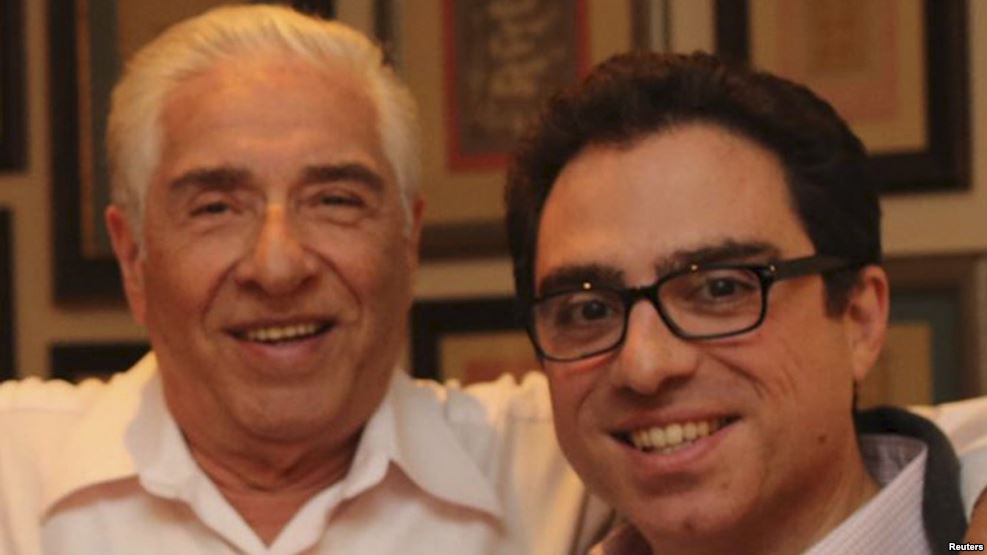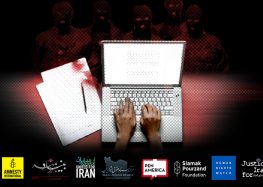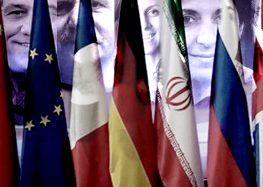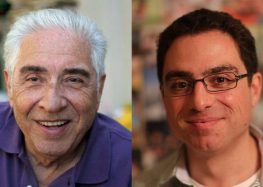Supporters Urge For Release of Ailing Iranian-Americans Siamak and Baquer Namazi Imprisoned in Iran
 The American lawyer representing ailing Iranian-Americans Siamak Namazi and his father, Baquer, serving 10-year sentences in Iran for unspecified espionage charges, has called for US President Donald Trump to immediately secure their release.
The American lawyer representing ailing Iranian-Americans Siamak Namazi and his father, Baquer, serving 10-year sentences in Iran for unspecified espionage charges, has called for US President Donald Trump to immediately secure their release.
“If not resolved quickly, the Namazi cases could have an outsized impact on the trajectory of Iran-US relations because both men are in rapidly declining health,” said attorney Jared Genser, standing alongside Babak Namazi, Siamak’s brother, at a press conference in Geneva on April 25, 2017.
“In our view, something happening to the Namazis would be devastating not just to one side, but to both sides,” he added. “For either or both of the Namazis to die on [President Trump’s] watch would be a public and catastrophic failure of his negotiating skills.”
The Namazis are being held in Evin Prison’s Ward 2-A, controlled by the Islamic Revolutionary Guards Corps (IRGC). In 2016, they were tried without access to their lawyer.
The health of Siamak Namazi, 45, has seriously deteriorated after a hunger strike in 2016 and prolonged periods of interrogation since his arrest in 2015. Eighty-year-old Baquer Namazi meanwhile suffers from heart problems, according to his wife.
At the press conference, Babak Namazi said he is counting on Trump “to take personal responsibility” for his loved ones’ lives.
“This doesn’t happen if I’m president,” then-presidential candidate Trump declared after the Namazis were convicted in 2016.
Genser said the US president should be “good to his word and do whatever is necessary to secure their release.”
Siamak Namazi, an Iranian-American dual citizen, was arrested in Tehran on October 15, 2015.
He headed the strategic planning division for Crescent Petroleum, an oil and gas company based in the United Arab Emirates. Previously he was an executive at the Tehran-based Atieh Bahar business consulting company and had produced academic research for the Woodrow Wilson Center as a public policy scholar.
Baquer Namazi, an 80-year-old former representative of the UN’s Children’s Fund (UNICEF) who also holds dual citizenship, was arrested on February 22, 2016 after he traveled to Iran to follow up on his son’s case.
In a trial in which they were denied full due process, the Namazis were sentenced to 10 years in prison in October 2016 for “collaborating with enemy states,” but the exact charges remain secret.
“Trump has proven himself to be a great deal-maker in the business world,” wrote Babak Namazi on April 24. “I urge him to use those negotiating abilities to reach a deal that will bring my family home.”
The judiciary’s ongoing imprisonment of dual nationals contradicts Rouhani’s repeated calls for expatriates to return to Iran. The growing number of arrests also reflects hardliners’ efforts to prevent the engagement with the West that the Rouhani administration has sought to encourage.
Iranian-born Canadian resident Saaed Malekpour, serving a life sentence, has been held since October 2008; Iranian-British dual citizen Nazanin Zaghari-Ratcliffe, sentenced to five years in prison in September 2016, has been held since April 2016; British-Iranian citizen Roya Saberi Nobakht, held since October 2013, has been sentenced to seven years in prison; Nizar Zakka, a Lebanese-born US permanent resident, held since September 2015, has been sentenced to 10 years in prison; and Iranian-Austrian dual citizen Kamran Ghaderi, held since January 2016, has been sentenced to 10 years in prison.
Iranian-American Karan Vafadari, held since July 2016, and Iranian-born Swedish resident Ahmadreza Djalali, held since April 2016, have not been sentenced yet.






